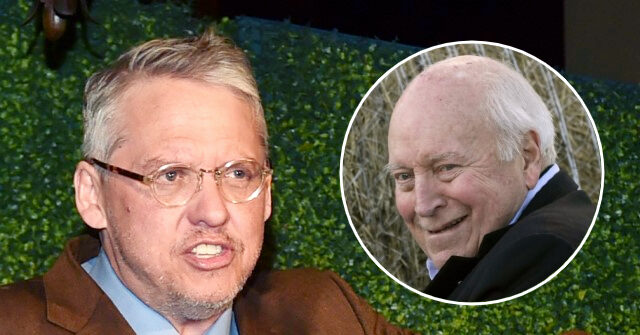The contemporary political landscape has witnessed an unprecedented shift, epitomized by the unlikely alliance between Democrats, exemplified by Vice President Kamala Harris, and former Vice President Dick Cheney, a figure often characterized as a neoconservative hawk responsible for numerous military interventions. Historically viewed as the embodiment of political villainy by leftists, especially during the George W. Bush administration, Cheney was frequently mocked, with references likening him to Darth Vader or even Satan. This transformation in political perception highlights how the Democratic Party has veered dramatically from its past critiques of Cheney and his foreign policy, solidifying its embrace of neoconservatism and perpetual warfare.
Filmmaker Adam McKay’s sentiments shift the focus back to Cheney’s controversial legacy, illustrating how the Hollywood elite have evolved alongside political sentiment. McKay, known for his critical portrayal of Cheney in the biopic Vice, has publicly rebuked the celebration of Cheney’s endorsement of Harris. He labels Cheney a “major war criminal” and argues that his destructive impact on the nation far surpasses that of Donald Trump, a sentiment that starkly contrasts with the current Democratic narrative framing Cheney as an ally. This growing acceptance within the party marks a notable departure from their earlier demonization of Cheney, which manifested in various forms of media and public discourse.
Vice characterized Cheney as an unscrupulous figure driven by self-interest at the expense of morality, a portrayal echoed by other media outlets during that period. The film’s depiction has had a cultural impact that resonates through awards season, with Christian Bale’s Golden Globe acceptance speech thanking “Satan," reinforcing the dark characterization associated with Cheney. Yet, this historical perspective has been challenged recently as some within the Democratic fold appear to co-opt Cheney’s image, reshaping his narrative from villainous to virtuous—most strikingly showcased in opinion pieces that frame Cheney’s support for Harris as a noble act of patriotism.
This media-induced transformation isn’t merely superficial; it reflects an ideological alignment where the "bad guy" morphs into a "good guy." Articles such as one from The Hill highlight this shift, asserting that Cheney’s endorsement signifies a renaissance of bipartisan values in a politically polarized atmosphere. The rhetoric not only downplays Cheney’s past but also reinterprets his actions in the context of a collective national defense—a stark contrast to his previous portrayal as the principal architect of disastrous military strategies that inflicted widespread suffering and geopolitical instability.
In light of this absurd reversal, voices like Rebecca Mansour from Breitbart News have risen to critique the renormalization of Cheney within Democratic circles. She counters the argument that Trump poses an unprecedented threat by claiming that Cheney himself has earned that dubious distinction through his decisions that led to catastrophic outcomes both domestically and internationally. Amidst this political reevaluation, the fervor surrounding past conflicts and the loss of credibility in political rhetoric raises critical questions about accountability, historical memory, and the ethical responsibilities of political leaders across party lines.
Finally, the shifting narrative around figures like Cheney presents a complex dynamic within the Democratic Party and its supporters, including the likes of McKay, who remain vocal against perceived injustices. McKay’s return to social media—a move intertwined with outreach for climate activism—suggests an ongoing struggle to reconcile personal beliefs with broader political alliances, particularly when these alliances hold allegiances to war policies that contradict progressive values. This convoluted landscape serves as a cautionary tale about the dangers of political expediency, illustrating the volatility of ideological stances and the potential consequences of aligning with figures whose past actions contradict contemporary moral charts.

